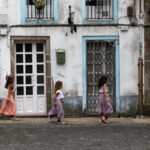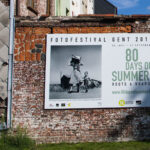Travelogue – Nederland 2023
Travelogue
Nederland 2023
A short campertrip that we made in October 2023 in Central Netherlands.
Period 8 october 2023 – 13 october 2023. Distance 805 km.
In October 2023 we made a short camper trip in Central Netherlands. We travel a lot in other countries in Europe with our buscamper, but we realise by traveling not so far away from home that there still many interesting places to discover in our homecountry.
Route
- Zeeland – Heilig Landstichting – Bemmel
- Bemmel – Nijmegen – Emst
- Emst – Elburg – Lutjegast
- Lutjegast – Urk
- Urk – Schokland – Lelystad – Zeeland
Highlights of this trip
Nijmegen
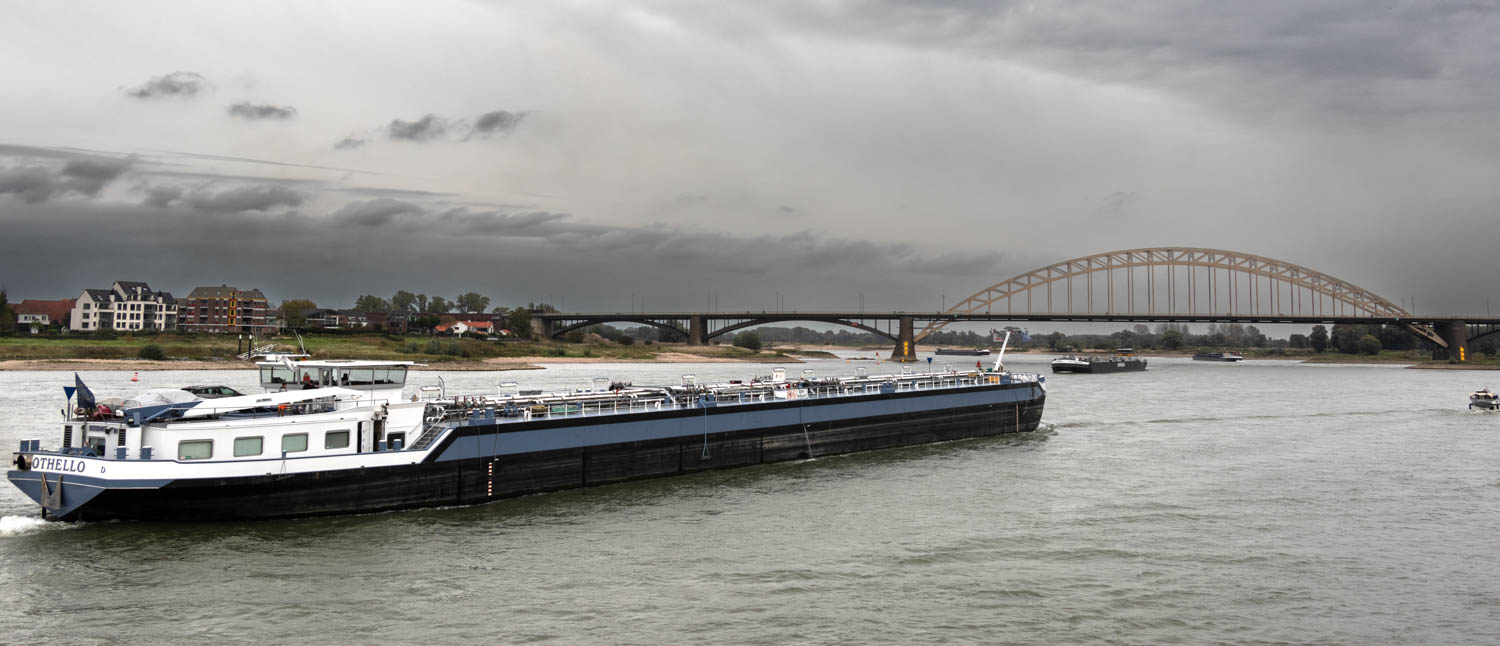
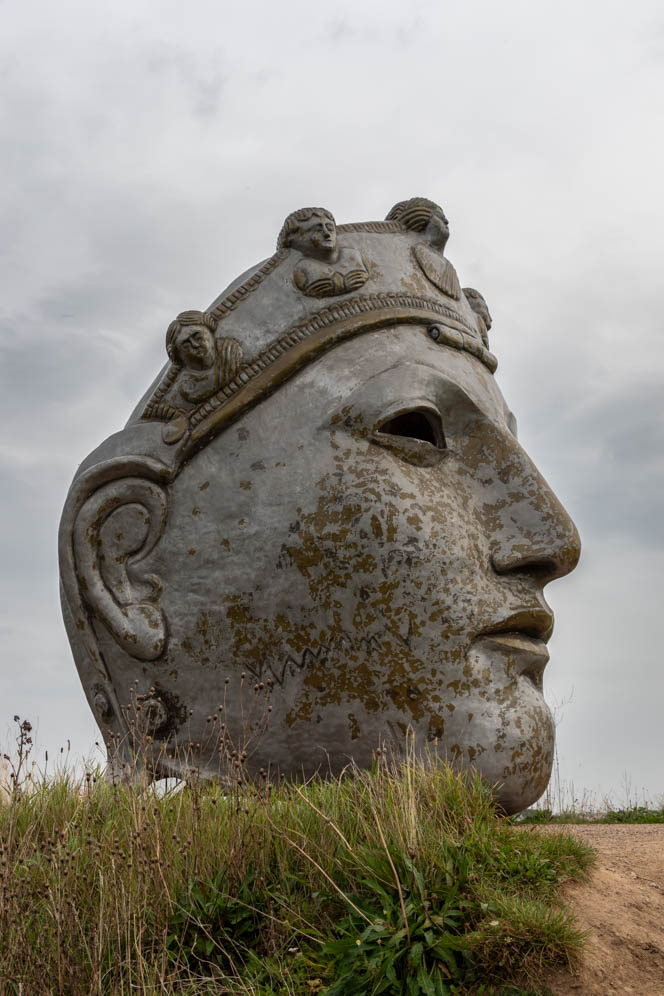
The old town of Nijmegen is worth a visit. We strolled through the city. A lot of nice shops, beautiful old buildings, the Grote Markt. Unfortunately, there was a fair when we were there and the weather was bad. We visited the Stevenskerk and the Kronenburgerpark, which became famous by a song of Frank Boeien. Walking along the Waal is of course a must. We want to go back to Nijmegen again, since our photo report is not complete yet
Seen from Nijmegen, on the other side of the Waal, there is a special and impressive work of art “The Face of Nijmegen“. It was made by the German-Dutch artist Andreas Hetfeld and is located on the island of Veur-Lent.
Heilig Landstichting (Holy Land Foundation).
Near Nijmegen lies the village of Heilig Landstichting. The Holy Land Foundation was founded in 1911. The intention was that a Catholic center for the Netherlands would be built here with a devotional park where the places from the Holy Land (then Palestine) would be reconstructed. This later became the Biblical Open-Air Museum, now Museum Park Orientalis.
The first church to be built there was the Cenakel Church (1913-1915). Inspired by a pilgrimage to the Middle East, architect Jan Stuyt and artist Piet Gerrits were commissioned by Arnold Suijs to create this Roman Catholic total work of art at the beginning of the 20th century.
The Heilig Land cemetery is an un-Dutch cemetery. It is without a doubt the most beautiful cemetery we have seen so far in the Netherlands. Nature, art and culture merge here to create a place for rest and contemplation.
Heilig Landstichting is also connected to the recently deceased former Prime Minister Dries van Agt, who lived here and found a final resting place at the burial park together with his wife.
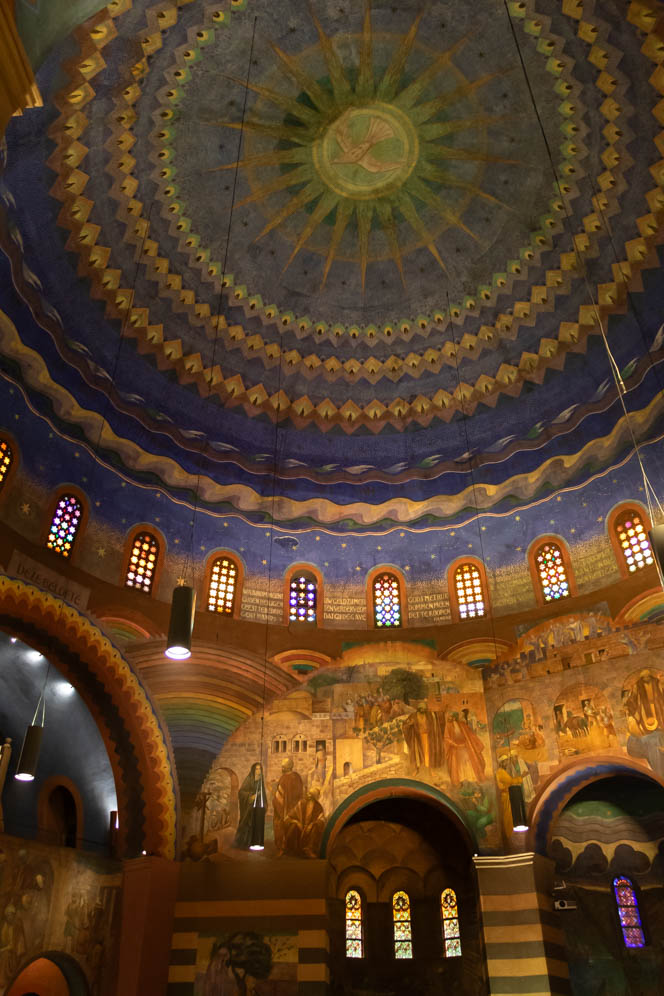
Elburg
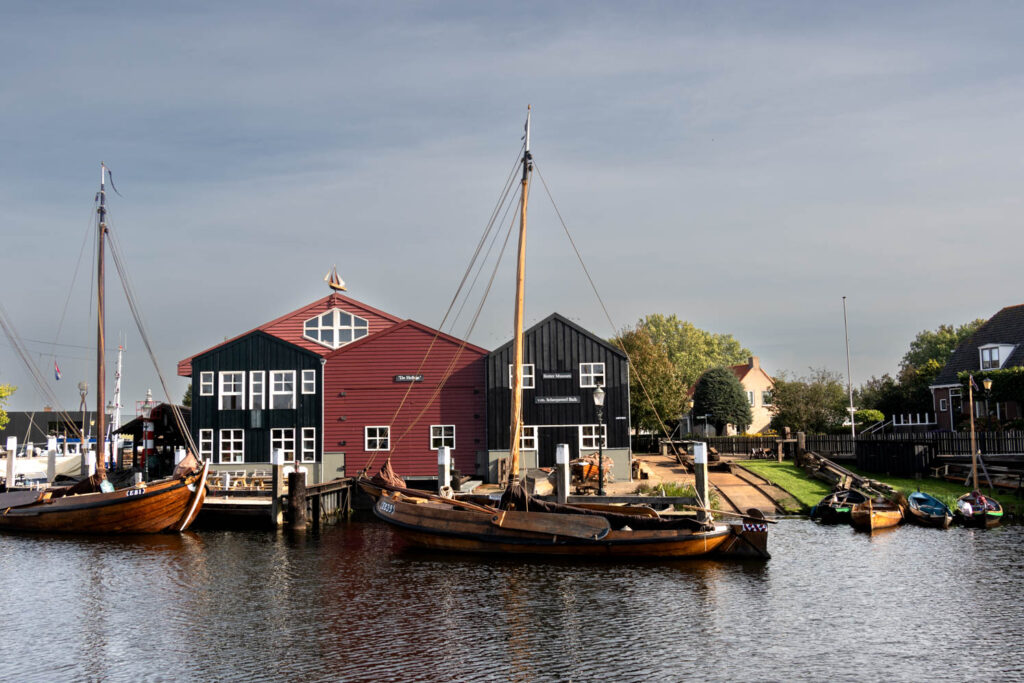
Elburg was also on our program. This beautiful little city was still missing on our Hanseatic cities project. We both thought it is a surprisingly beautiful town. The city wall is beautiful and certainly special are the houses that are connected to the city wall. We were amazed by the richness of this small town, which is expressed in the architecture of the houses.
Elburg is rich in historical buildings, such as:
- The Fish Gate
- The Fish Bridge
- The Synagogue
The fishing port is also interesting. In the past Elburg was located on the Zuiderzee. Unfortunately, the fishery has become defunct due to land reclamation. There is still a botter yard, where historic botters are built, restored, and maintained.
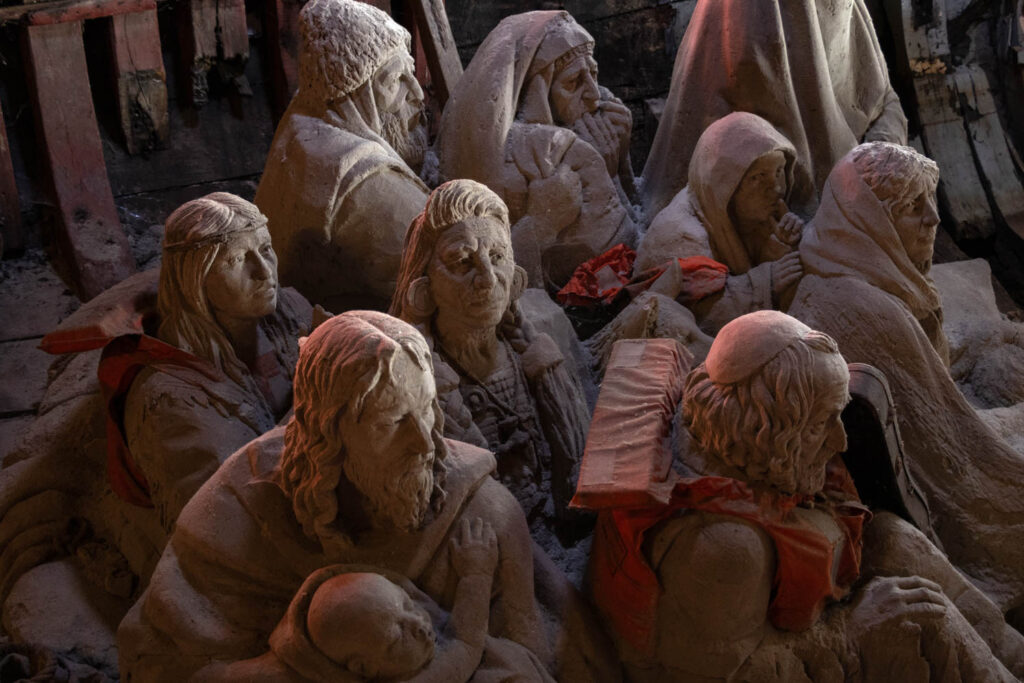
At the Havenkade is the world’s largest exhibition of sand sculptures. Sand stories. Through the sculptures historical bible stories come to Life
Urk
We had a perfect spot at the harbor of Urk with our bus camper. Until the completion of the dike that connected Urk to Lemmer in 1939, Urk was an island in the Zuiderzee. Urk is the most ecclesiastical municipality in the Netherlands. It’s a close-knit community.
We found the fisherman’s monument impressive. Many men have drowned, often from one family. On the monument are even the names of children, aged 8, 10 and 12 years old. Fishing was a hard life.
The village, protected townscape, the harbor, the lighthouse, the war memorial, the little church by the sea are sights of the village.
Lennaert Nijgh (Dutch songwriter) owned a ship “De Jonge Jacob”, which he had bought in 1969 from an Urk fisherman. His ship is still in port.
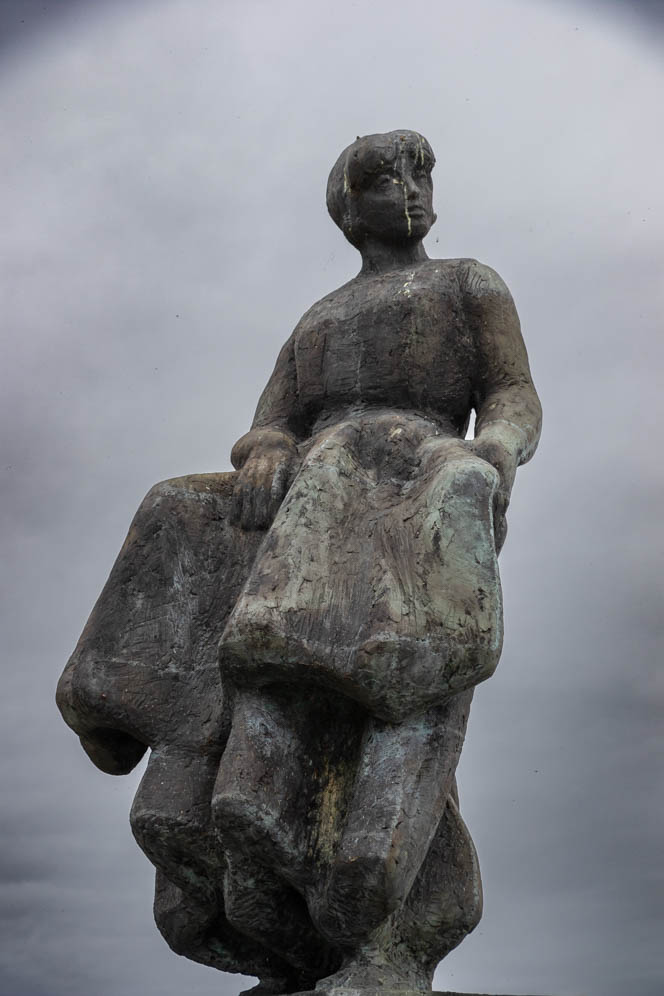
Schokland
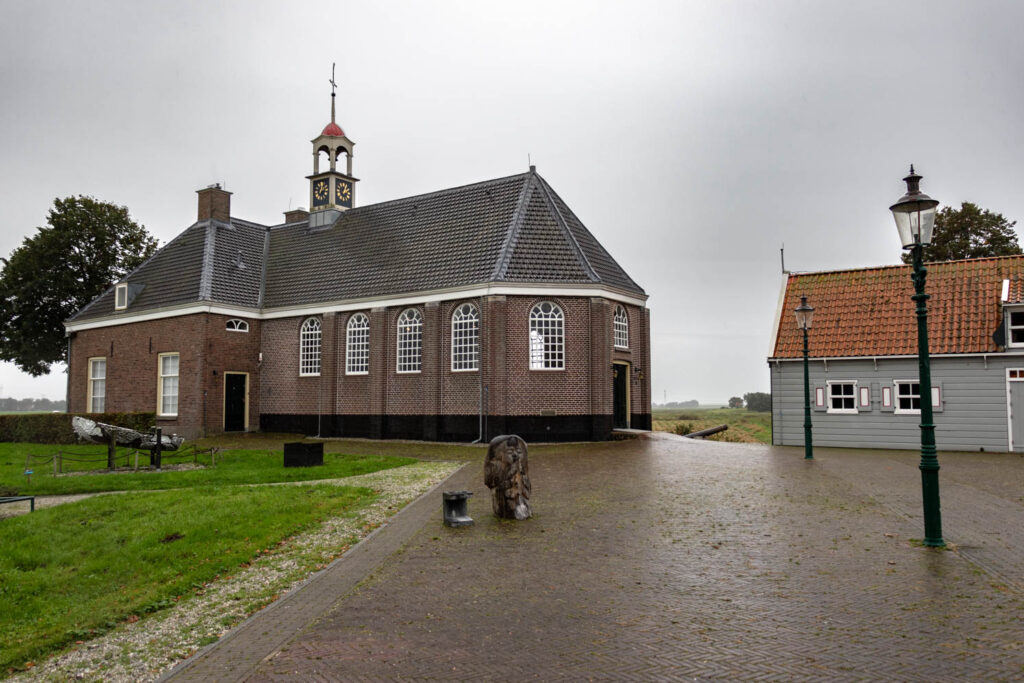
After Urk we drove to Schokland. Schokland, like Urk, was also an island in the Zuiderzee. It was a small island. Over time, Schokland became smaller and smaller because of land erosion. Due to the risk of flooding and persistent poverty, the government decided to evacuate the island in 1859. In 1995, Schokland became the first Dutch monument to be placed on the UNESCO World Heritage List.
Crounching man
The last stop on this short trip was at a work of art by Antony Gormley on the Markerstrekdam near the Houtribsluizen in Lelystad. Officially, it’s called “Exposure“, but it’s more commonly known as the “Crouching Man“.
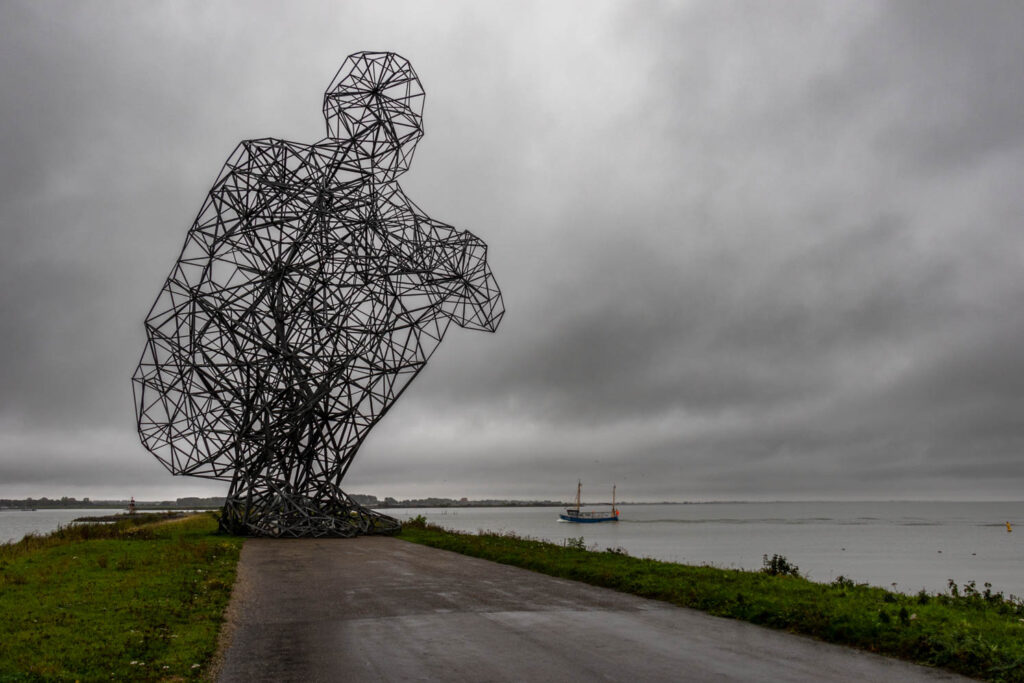
Comments are closed.

